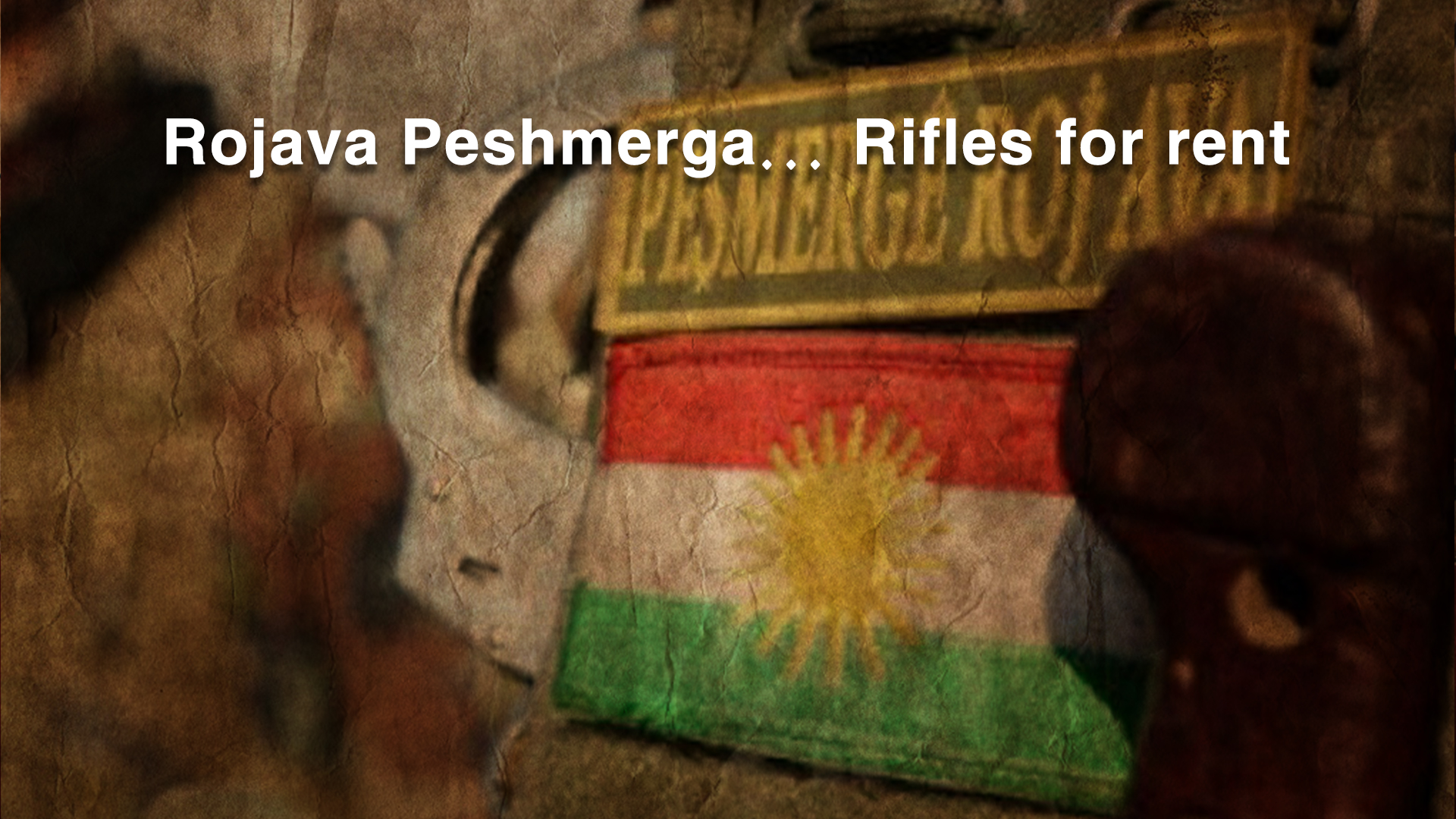Rojava Peshmerga… Rifles for rent

Mystery still surrounds the fate of the so-called Rojava Peshmerga militias who are present in southern Kurdistan (northern Iraq). No bulletin has been issued by the government of Kurdistan Region of Iraq (KRG) explaining the fate of these armed groups that are present on its territory in the midst of Turkish attempts to turn them into a replica of the Syrian mercenaries to send them to a place where the Turkish interests are.
This information coming from these groups, led by a Kurdish official named Hozan Haji Selo, indicates that they were sent to Turkish territory for the purpose of training, but the date of the their entry to Turkey is not clear. This information is coming in at a time when almost confirmed sources are talking about the start of a training program for these militias to use Turkish drones, which suggests that they may be used in operations carried out by the Turkish state in the area due to the withdrawal of these militias from their points of existence in the vicinity of Kirkuk and the Turkish military operations in the mountains of Kurdistan, where the points of the fighters of the Kurdistan Workers Party (PKK) are stationed.
Perhaps the recent attacks led by ISIS on a number of villages in the vicinity of Kirkuk confirm that despite the military presence of these militias in the areas around Kirkuk, which were documented by media outlets affiliated with the Kurdistan Democratic Party (KDP), it has decreased due to their repeated sending of these militias to the areas of Dohuk, Zakho and the border separating between southern and northern Kurdistan (southeastern Turkey and northern Iraq), specifically the areas where the PKK fighters are located.
On the other hand, these armed groups have increased their presence on the borders separating southern Kurdistan and the regions of Rojava (northeast Syria), starting from the triangle of the Syrian-Turkish-Iraqi border all the way to the city of Shingal (Sinjar); While it had strengthened its presence by erecting watchtowers on the borders. These huge reinforcements that these forces are mobilizing, come at a time when the Turkish state announces its intention to launch a military operation against the regions of northern and eastern Syria.
These preparations by these militias are coupled with reducing the Turkish military dependence on the ground forces in advancing in the areas they are targeting in southern Kurdistan, where the Turkish state has recently, according to the available information, assigned the tasks of guarding and protecting the 38 Turkish bases in the Kurdistan region, in addition to operations commands of combing the areas where the state launches air attacks, and these steps were documented by members of the Peshmerga while they were conducting combing and demining operations in those areas.
Perhaps one of the reasons that prompted the Turkish state to rely more on the Kurdish forces, especially the Rojava Peshmerga that have promoted their operations in southern Kurdistan, lies in exploiting the point that the PKK was not drawn into the intra-Kurdish struggle or targeting the Kurdish forces, due to the PKK’s commitment to the agreement signed between the leader Abdullah Ocalan and the former head of the KDP, Mr. Idris Barzani in 1982.
These facts come in light of the high popular demands by the families of these armed groups to return to their land and not be drawn into the proxy war and work as mercenaries for the Turkish fascism, which seeks to ignite an intra-Kurdish war that could be directly reflected in Rojava due to the adoption of the Kurdish National Council in Syria (ENKS) of the militias as a military force.
We conclude from the following that the Turkish state is proceeding in a scheme to target the Kurdish people in all parts of Kurdistan and to preoccupy it with internal disputes, in addition to its financing of Turkish military operations by following the hybrid war (multi-method war) and financing and rehabilitating armed groups operating on demand and heading to any place required by Turkish interests.




